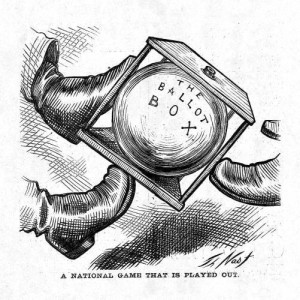The Extrajudicial Killing of Anwar al-Awlaki
 On Friday, September 30, 2011, Anwar al-Awlaki (Aulaqi), a U.S. citizen and well-known al-Qaeda figure, was targeted and killed during a U.S. drone strike in Yemen. Samir Khan, also a U.S. citizen, was killed in the same attack. Khan was the editor of Inspire, an English-Language al-Qaeda magazine that, among other things, publishes how-to articles designed to help terrorists build bombs for jihadist attacks against Americans. Awlaki was perhaps best known in the U.S. for planning the failed underwear bombing of a commercial airliner over Detroit in 2009 (the alleged bomber’s criminal jury trial is currently underway), and for helping plan the 2009 massacre at Fort Hood.
On Friday, September 30, 2011, Anwar al-Awlaki (Aulaqi), a U.S. citizen and well-known al-Qaeda figure, was targeted and killed during a U.S. drone strike in Yemen. Samir Khan, also a U.S. citizen, was killed in the same attack. Khan was the editor of Inspire, an English-Language al-Qaeda magazine that, among other things, publishes how-to articles designed to help terrorists build bombs for jihadist attacks against Americans. Awlaki was perhaps best known in the U.S. for planning the failed underwear bombing of a commercial airliner over Detroit in 2009 (the alleged bomber’s criminal jury trial is currently underway), and for helping plan the 2009 massacre at Fort Hood.
Al-Awlaki’s assassination continues to draw heavy criticism both in the U.S. and abroad because he is believed to be the first U.S. citizen targeted and killed by the executive branch of the federal government without regard for Fifth Amendment due process. Ron Paul published an op-ed in the New York Daily News expressing his outrage at al-Awlaki’s execution. Paul, in response to what he calls the illegal murder of a U.S. citizen, is calling for President Obama’s impeachment.


 The Supreme Court heard
The Supreme Court heard